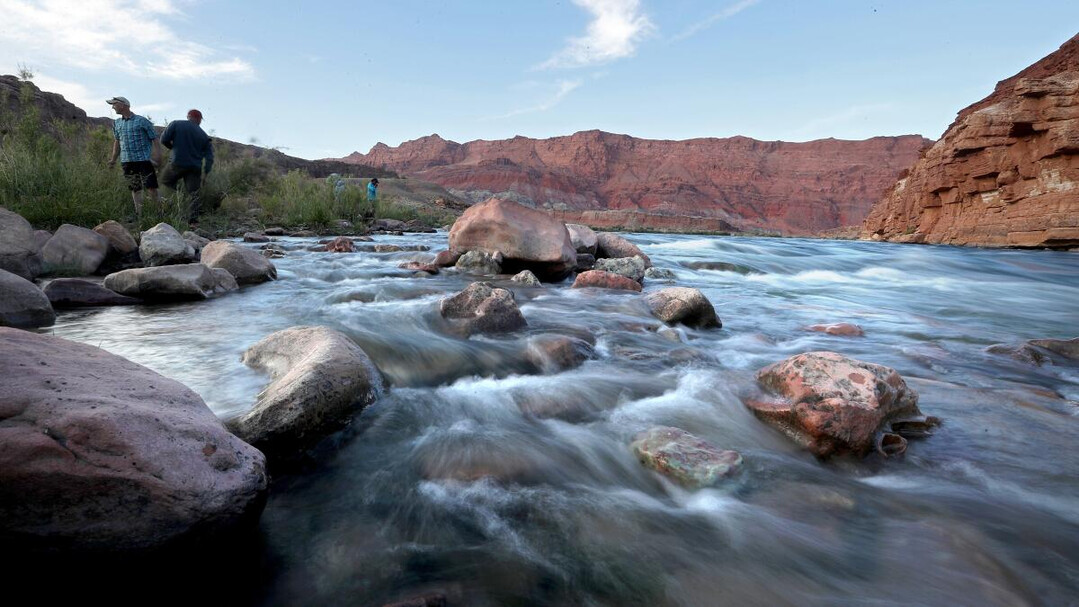
Washington, D.C. – The Trump administration's recent decision to deny a water delivery to Mexico has sparked alarm among experts, who fear the move could jeopardize future cross-border negotiations concerning the increasingly strained resources of the Colorado River and the Rio Grande.
The decision, deemed unprecedented and the first of its kind in 81 years, involved the rejection of Mexico's special request for additional Colorado River water to be transferred to the city of Tijuana. The U.S. State Department defended its action by accusing Mexico of failing to fulfill its obligations to Texas under the 1944 water-sharing treaty.
Experts Criticize Move, Cite Potential Damage to Relations
Stephen Mumme, a political scientist at Colorado State University and a nonresident fellow at Rice University's Baker Institute for Public Policy, characterized the Trump administration's decision as both irrational and potentially damaging. Mumme expressed concern that the move would negatively impact ongoing long-term renegotiations with Mexico regarding the shared Colorado River resource. "This is not designed to encourage Mexican cooperation, and Mexico can drag its feet in any number of ways," Mumme stated.
The 1944 Treaty and Water Sharing Agreements
The crux of the issue lies in the 1944 treaty, officially titled "Utilization of Waters of the Colorado and Tijuana Rivers and of the Rio Grande." This agreement established a framework for water sharing between the U.S. and Mexico. Under the treaty, the U.S. is obligated to provide Mexico with Colorado River water, while Mexico is required to deliver water from the Rio Grande to the U.S.
The treaty also created the International Boundary and Water Commission (IBWC), a joint organization responsible for managing shared water deliveries and related infrastructure.
Mexico is entitled to 1.5 million acre-feet of Colorado River water annually, based on the river's historical flow. In comparison, the U.S. Colorado River basin states are allocated a total of 15 million acre-feet per year. An acre-foot is roughly the amount of water consumed by an average American household in a year.
Regarding the Rio Grande, the 1944 treaty mandates that Mexico deliver 1.75 million acre-feet to the U.S. over a five-year cycle, with provisions for carrying over deficits. However, Mexico has accumulated a significant water debt over the years, falling short of its delivery obligations.
The U.S. State Department highlighted this shortfall in a recent social media post, stating that Mexico's unmet obligations are "decimating American agriculture."
Drought Conditions Exacerbate Tensions on the Rio Grande
Despite the U.S. stance, Mumme argued that Mexico is "absolutely compliant with the treaty," which includes allowances for "extraordinary drought" and enables both countries to agree on emergency measures. Data from the North American Drought Monitor indicated that as of December, a significant portion (55.4 percent) of the Rio Grande basin was experiencing "moderate to exceptional drought."
IBWC data reveals that Mexico has delivered only 488,634 acre-feet of water between October 2020 and the present, representing a mere 28 percent of its total requirement for the current five-year cycle, which ends this October. Mumme acknowledged the unlikelihood of Mexico meeting its obligations within this timeframe, noting a similar situation in 1997. The treaty allows the U.S. to grant forbearance and permit Mexico to carry over its debt into a subsequent cycle.
Gabriel Eckstein, a professor at the Texas A&M University School of Law, echoed this sentiment, stating that it is improbable Mexico will meet its current obligations and that "Texas is going to blow its gasket." He suggested that unless significant rainfall occurs, this situation could persist for years. Ironically, recent record-breaking rainfall caused flash floods in the Rio Grande Valley, but Texas Agriculture Commissioner Sid Miller noted that this downstream rain is unlikely to replenish crucial reservoir levels.
Progress and Persistent Challenges
In November, the U.S. and Mexico signed the Minute 331 agreement, aimed at improving the reliability of Rio Grande water deliveries, including exploring alternative tributary transfer options. Maria-Elena Giner, the U.S. commissioner for the IBWC, acknowledged the "overstretch water resources" and the necessity for change. Minute 331 also promotes the development of water conservation and efficiency measures.
Mumme viewed Minute 331 as a positive step but recognized that it would likely not fully satisfy the demands of South Texas irrigators. While Texas has acknowledged the impact of drought, the state has also accused Mexico of withholding water in upstream dams. Mexico, while agreeing on its compliance responsibilities, has emphasized the difficulties posed by persistent drought.
Mumme pointed out that while Mexico bears a greater compliance burden and is currently technically treaty-compliant, its inconsistent compliance over the past decade has negatively impacted Texas farmers. Texas Governor Greg Abbott recently accused Mexico of treaty breaches, demanding an end to this "blatant disregard of water obligations." Texas Agriculture Commissioner Miller lauded the state Senate's resolution to pressure federal officials on Mexico's water obligations, emphasizing the vital role of farming in the Rio Grande Valley's economy. The U.S. Department of Agriculture recently approved a $280 million grant to provide economic relief to eligible Rio Grande Valley farmers.
Divergent Approaches to Water Management
Mumme stressed that proactive measures, such as establishing parameters for defining extraordinary drought, could have improved the current situation. He highlighted that the seven U.S. Colorado River states and Mexico have successfully implemented such agreements for water distribution and shortage management in that basin. "That's what hasn't happened on the Rio Grande — Texas has not agreed to take any hits," Mumme explained.
Eckstein echoed this perspective, expressing hope for a similar collaborative approach on the Rio Grande, noting the successful grassroots efforts on the U.S. side regarding the Colorado River. He questioned whether Texas stakeholders would be willing to adopt a similar stance.
Trump Administration's Tactics Draw Criticism
Mumme strongly criticized the Trump administration's decision to deny Colorado River water to Tijuana based on Rio Grande debts, calling it a "misuse of the treaty," "mean spirited," and "an act of desperation on the Texans' part."
Eckstein described the situation as "awkward politics," with the Trump administration using one river basin as leverage in another.
Mexican President Claudia Sheinbaum acknowledged the issue as "important" and stated that it would be addressed by the IBWC and Mexico's national water utility, Conagua. Eckstein believes Mexico's leadership is willing to engage but might react negatively to threats. He also suggested that waning trust in the U.S. could lead Mexico to seek alternative markets for its agricultural products.
Mumme argued that Trump's decision is unlikely to yield more water for Texas farmers and "may, in fact, make it more difficult for them to negotiate the next agreement." He characterized the move as "typical Trump administration bullying," criticizing the use of intimidation in diplomacy.
Eckstein concurred, emphasizing that "Mexico is not an adversary — it's a partner." He stressed the importance of treating Mexico as a partner in negotiations rather than an adversary.
[Copyright (c) Global Economic Times. All Rights Reserved.]





























